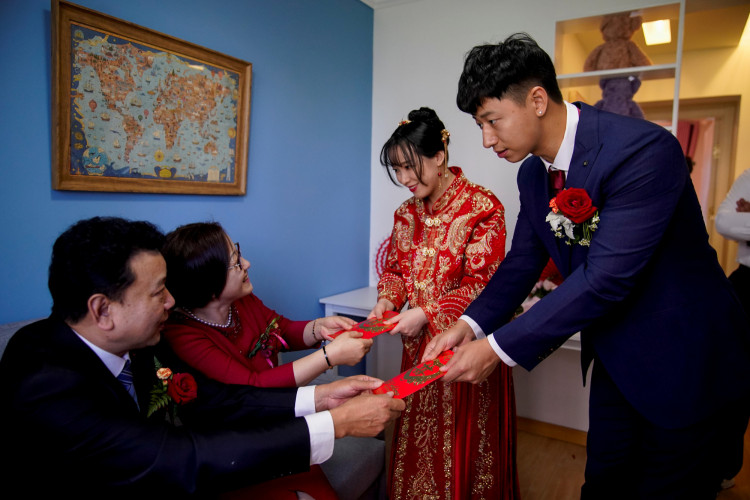In response to a dwindling population, Chinese officials have intensified their efforts to curb the ancient tradition of betrothal gifts, known as "bride prices" or caili in Mandarin, in hopes of encouraging marriages, according to a report published by New York Yimes. These bride prices, which have skyrocketed in recent years, average around $20,000 in some provinces, rendering marriage increasingly unattainable for many. Traditionally paid by the groom's parents, these payments have become a contentious issue in Chinese society.
To tackle the practice, local governments have rolled out various campaigns, such as the Daijiapu event held in southeast China. The campaign urges unmarried women not to compete for the highest bride prices, emphasizing the importance of abandoning this outdated custom. Some town officials have taken matters into their own hands by imposing caps on caili or directly intervening in private negotiations between families.
However, these campaigns have been met with growing resistance from the public, as attitudes towards the tradition continue to evolve. More educated Chinese individuals, particularly those in urban areas, view caili as a patriarchal relic that objectifies women. The tradition has also become unpopular in rural areas, where poor farmers must save for several years or go into debt to afford marriage.
The government's efforts to address the issue have been criticized for perpetuating sexist stereotypes of women. Some critics argue that the government's campaign sidesteps the fact that the issue is, in part, a result of their own policies, such as the one-child policy. This policy has led to a lopsided gender ratio, exacerbating competition for wives and intensifying the problem of soaring bride prices.
Despite the government's attempts to curb the tradition, it remains firmly entrenched in many communities, where it is seen as a marker of social status. Sociologists suggest that a more effective approach to tackling the issue would involve increasing funding for childcare and senior healthcare, thus reducing the financial burden on families.
As more young Chinese individuals either delay or forgo marriage altogether, attitudes around marriage payments are shifting. A 2020 survey found that highly educated couples were less likely to engage in the practice of paying bride prices, instead focusing on mutual love and support. Additionally, some parents, eager to ensure their daughters are treated well in marriage, are willing to accept lower bride prices.
Nevertheless, for many, especially those from rural areas with deeply ingrained traditions, escaping the pressure of hometown customs remains a challenge. As China continues to grapple with the complex issue of rising bride prices, it remains to be seen whether the government's efforts will lead to lasting change or if societal attitudes will evolve independently to reshape the practice.






